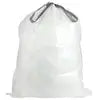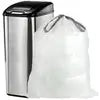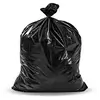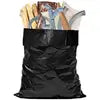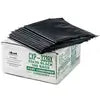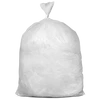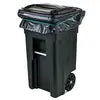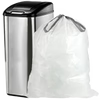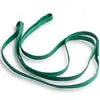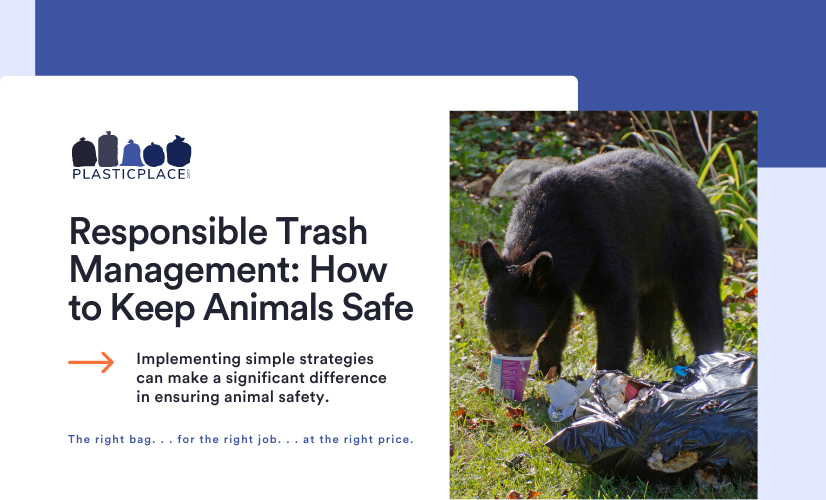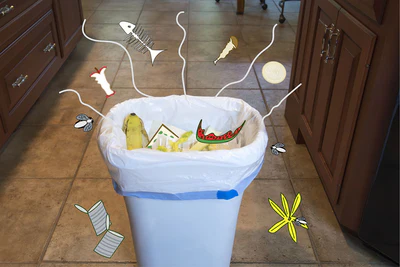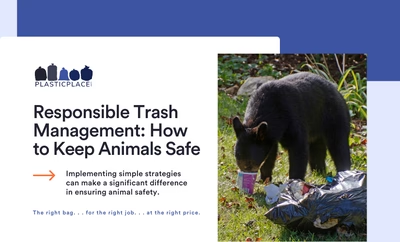Have you ever found your pet's nose buried in the garbage can, scavenging through leftovers? It's not just their curiosity at play; the lure of human food often proves too tempting for your four-legged friends. Ensuring the safety of your pets involves more than just providing them with food, shelter, and love. One often overlooked aspect is the proper management of our garbage. However, this seemingly harmless behavior poses risks to your household pets and wildlife exploring our outdoor bins.
If garbage isn't handled properly, it can become a dangerous lure for curious pets and wildlife, drawing them in with the scent of food or curiosity and potentially exposing them to harm. Thankfully, by taking proactive measures, you can safeguard these vulnerable animals from the risks associated with unsecured trash. Implementing simple strategies can make a significant difference in ensuring their safety.
Understanding the Risks
Pets are naturally curious (cats especially), often tempted by the intriguing smells and potential treats hidden within our garbage cans. This innocent curiosity can lead to serious consequences. Pets rummaging through trash may encounter a variety of hazards, from choking on small items to ingesting toxic substances or sharp objects that can cause internal injuries. The allure of leftover food, especially if spoiled, poses a risk of food poisoning or exposure to harmful bacteria.
The danger extends beyond your home to the outdoor environment, where wildlife is equally at risk. Unsecured garbage attracts animals, leading them to similar threats household pets face. Moreover, wildlife interaction with human waste contributes to broader ecological issues, impacting not just the individual animals but their habitats and communities. By carefully securing and managing your trash, we play a crucial role in safeguarding our pets and the local wildlife, preventing harm, and maintaining a healthier environment.
Keeping Your Pets Safe at Home
We’ve learned that keeping pets away from garbage is crucial for their safety and your peace of mind. Securing garbage cans with tight-fitting lids inside the house or investing in pet-proof models can make all the difference. Specialized cans withstand curious paws and noses, ensuring contents stay inaccessible. Additionally, natural deterrents around garbage areas, such as citrus peels or vinegar sprays, can discourage pets from getting too close due to their aversion to these smells. Training your pets to avoid garbage areas is another effective strategy, reinforcing positive behavior with rewards.
Equally important is the role of education within the household. Ensuring all family members understand the risks associated with pets accessing garbage and the measures to prevent it can help maintain a consistent and safe environment. Teaching children and other household members about the importance of keeping garbage secure protects your pets and instills a sense of responsibility toward pet safety.
To recap, consider these strategies to manage garbage and keep your pets safe:
- Secure garbage cans with tight-fitting lids.
- Invest in pet-proof garbage cans designed to keep curious pets out (don’t worry, we have a garbage bag for that).
- Utilize natural deterrents, like citrus peels or vinegar, to repel pets from garbage areas.
- Train pets to understand that garbage areas are off-limits.
- Educate all family members about the risks and the importance of securing garbage.
Preventing Outdoor Animals from Raiding Trash
Discovering wildlife exploring your trash can be both surprising and concerning, especially when it leads to litter scattered around your yard. Keeping outdoor animals safely away from your garbage protects them and helps maintain our surroundings' cleanliness. Implementing thoughtful strategies like securing outdoor garbage cans can make a significant difference. Options like locking lids, challenging for curious animals to navigate, and weighted bases to keep cans stable help ensure our trash stays put. Additionally, fastening garbage bags with ties can provide an extra layer of security, minimizing the appeal for animals looking for food and keeping our neighborhoods clean and safe for everyone.
For added security, placing cans in a secured area, like a locked shed or garage, until collection day or constructing a garbage can enclosure can provide an extra layer of protection. These physical barriers deter animals from accessing the trash and help keep your outdoor space clean and animal-free. Fostering a sense of community responsibility toward managing garbage can significantly contribute to protecting local wildlife. By collectively ensuring that trash is properly secured and disposed of, we not only safeguard our homes from animal intruders but also contribute to the well-being of the wildlife in our area.
Let’s review tips on preventing outdoor animals from raiding trash:
- Use locking lids on garbage cans to keep animals out.
- Add weighted bases to cans to avoid tipping.
- Store cans in a secured area or build a garbage can enclosure for extra protection.
- Encourage community involvement in responsible garbage management to protect wildlife.
- Use bag ties for extra secure trash.
Pet-Friendly Trash Disposal Tips
Safely disposing of hazardous materials, like cleaning products and foods toxic to pets, helps prevent accidental ingestion. Opting for biodegradable or compostable garbage bags is an eco-friendly approach that reduces environmental impact while securing waste away from curious noses. Regularly cleaning and maintaining garbage areas ensures they don't attract pets or wildlife, keeping your home and the animals safe. Implementing these practices protects our furry friends from harm and supports a cleaner, greener living environment.
The takeaways for safe garbage management include:
- Proper disposal of hazardous materials to protect pets.
- Choosing eco-friendly garbage bags to minimize environmental harm.
- Keeping garbage areas clean to avoid attracting animals.
Pets, with their curiosity and sometimes mischievous nature, often find their way into garbage cans, lured by the scent of leftover food or interesting smells. This can lead to many problems, from minor messes in the house to severe health issues. Consuming spoiled food or toxic substances, choking on indigestible materials, or getting cut on sharp objects discarded carelessly are common issues pets face. Outdoor animals, too, face similar threats when they scavenge through garbage left unsecured outside, contributing to a broader environmental problem. Responsibly managing your garbage is a small but significant step we can take to ensure the well-being of our beloved pets and the local wildlife, protecting them from the dangers that waste can present.
Key Takeaways:
- Indoor Pet Safety: Keep pets safe by using pet-proof trash cans and educating household members. Choosing the right-sized trash bag reduces waste and protects pets from trash-related dangers.
- Protecting Wildlife: Outdoor trash cans should have locking lids and weighted bases, and enclosures should be considered to keep wildlife safe and communities clean.
- Responsible Garbage Management: Opt for eco-friendly bags and maintain clean garbage areas to reduce environmental impact and safeguard pets and wildlife. Thoughtful waste management supports sustainability.
 4.9 out of 5
4.9 out of 5  Mix & Match: Buy any two products for 10% off!
Mix & Match: Buy any two products for 10% off!













